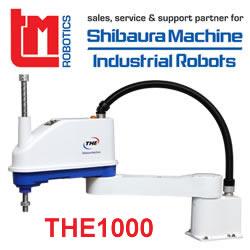PTC and Stratasys Collaborate to Define and Deliver Design for Additive Manufacturing
Market Leaders Enable Seamless Design-to-3D Print Workflow
NEEDHAM, Mass., MINNEAPOLIS, Minn., & REHOVOT, Israel--PTC (Nasdaq: PTC) and Stratasys Ltd. (Nasdaq: SSYS) today announced the companies are working together to deliver a seamless experience between PTC Creo design software and Stratasys 3D Printing Solutions. The joint vision is to make additive manufacturing more accessible to designers and manufacturers and to allow them to fully realize the advantages of the technology. These advantages include geometric freedom and part functionality, economic low volume and on-demand manufacturing, the production of customized products, and more.
Today, designers and manufacturers typically need to use multiple tools along with 3D CAD software to design, optimize, and validate parts for 3D printing. This can be a cumbersome, inefficient, and sometimes a disconnected process that makes it difficult to accurately produce the final manufactured part. It may necessitate additional efforts and increase time and resources.
The goal of the integrated solution is to define and deliver design for additive manufacturing. This is the ability to seamlessly create, optimize, validate and produce parts through the additive manufacturing process.
PTC and Stratasys begin to deliver this vision by offering a seamless workflow from design to 3D print, now available in PTC Creo 3.0. This new integrated workflow streamlines the 3D printing experience by allowing users to perform informed design specification, file preparation, print optimization and print execution for Stratasys 3D Printing Solutions from within the PTC Creo environment.
The first 3D printer which can take full advantage of the new joint solution is the Stratasys Objet500 Connex3 Multi-color, Multi-material 3D Production System, which delivers 3D printed parts with multi-color and multi-material combinations, superior surface quality, color accuracy and functionality. Integration with additional Stratasys 3D Printing Solutions is planned for future releases.
"In sharing a common vision of the future of additive manufacturing, Stratasys and PTC have forged a close relationship that begins to benefit our common customers today," said Mike Campbell, executive vice president, CAD, PTC. "Im excited about the impact I believe our collaboration will have on new designs across all industries as additive manufacturing continues to grow in production usage, and as our integration and respective products capabilities continuously improve."
PTC and Stratasys aim to drive further adoption of additive manufacturing across a wide range of industries, from automotive and consumer electronics to aerospace and defense, with substantial benefits for designers, engineers and manufacturers in the production of prototypes, manufacturing tools and finished products.
"Lowering the barriers involved in designing for 3D printing and unlocking the vast potential of additive manufacturing are primary goals of Stratasys strategic vision," said Dan Yalon, executive vice president, business development, marketing & vertical solutions, Stratasys. "By cooperating together, PTC and Stratasys intend to bring significant value to our customers - making additive manufacturing more accessible while providing practical, easy-to-use tools for designing and manufacturing using 3D printing."
Additional Resources:
PTC Design for Additive Manufacturing Resource Center
PTC Creo Resource Center
Stratasys Objet500 Connex3 Color Multi-material Production System
About PTC
PTC (Nasdaq: PTC) is a global provider of technology platforms and enterprise applications for smart and connected products, operations, and systems. PTCs enterprise applications serve manufacturers and other businesses that create, operate and service products. Led by its award winning ThingWorx® application enablement platform, PTCs platform technologies help companies deliver new value emerging from the Internet of Things. An early pioneer in Computer Aided Design (CAD) software, PTC today employs more than 6,000 professionals serving more than 28,000 businesses worldwide.
About Stratasys
Stratasys Ltd. (Nasdaq:SSYS), headquartered in Minneapolis, Minnesota and Rehovot, Israel, is a leading global provider of 3D printing and additive manufacturing solutions. The company's patented FDM and PolyJet 3D Printing technologies produce prototypes and manufactured goods directly from 3D CAD files or other 3D content. Systems include 3D printers for idea development, prototyping and direct digital manufacturing. Stratasys subsidiaries include MakerBot and Solidscape, and the company operates the digital parts manufacturing service, Stratasys Direct Manufacturing. Stratasys has more than 3,000 employees, holds over 800 granted or pending additive manufacturing patents globally, and has received more than 25 awards for its technology and leadership. Online at: www.stratasys.com or http://blog.stratasys.com.
Featured Product

